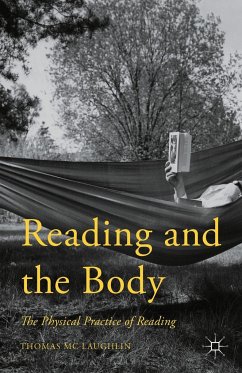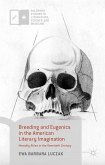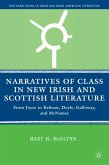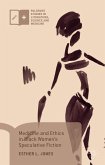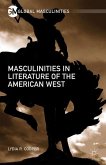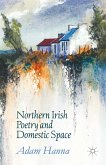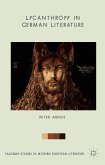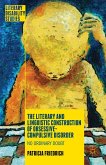Literary theory has been dominated by a mind/body dualism that often eschews the role of the body in reading. Focusing on reading as a physical practice, McLaughlin analyzes the role of the eyes, the hands, postures and gestures, bodily habits and other physical spaces, with discussions ranging from James Joyce to the digital future of reading.
"Reading and the Body is that rare thing, an original work of analysis. It is informed by the latest research about mind and body, as well as a life-time of thinking about genuine theory and distinguishing it from passing novelties. The book treats astutely reading's institutional forms, from humanistic brands to digital mining, even as it brings them into sharp focus within its expansive vision. Unlike the usual stance that approaches reading as an isolating habit, the book's analyzes its invisible physical and cultural dimensions, its self-disciplining and socially conditioning aspects, and allows us to understand holistically, in lucid elegant prose, what we do when we read." - Daniel T. O'Hara, Professor of English, Temple University, USA
"A fascinating investigation into the physical dimensions of reading. Thomas Mc Laughlin argues that the physiology of reading necessarily impacts one's experience of a text and even its interpretation. Positioning his own subtle arguments in relation to larger dialogues about social and cultural practices, Mc Laughlin creates a compelling portrait of the embodied reader, one that's especially relevant to today's media-saturated and text-rich landscape." - Gillian Silverman, Associate Professor of English, University of Colorado Denver, USA and author of Bodies and Books: Reading and the Fantasy of Communion in Nineteenth-Century America
"A fascinating investigation into the physical dimensions of reading. Thomas Mc Laughlin argues that the physiology of reading necessarily impacts one's experience of a text and even its interpretation. Positioning his own subtle arguments in relation to larger dialogues about social and cultural practices, Mc Laughlin creates a compelling portrait of the embodied reader, one that's especially relevant to today's media-saturated and text-rich landscape." - Gillian Silverman, Associate Professor of English, University of Colorado Denver, USA and author of Bodies and Books: Reading and the Fantasy of Communion in Nineteenth-Century America

